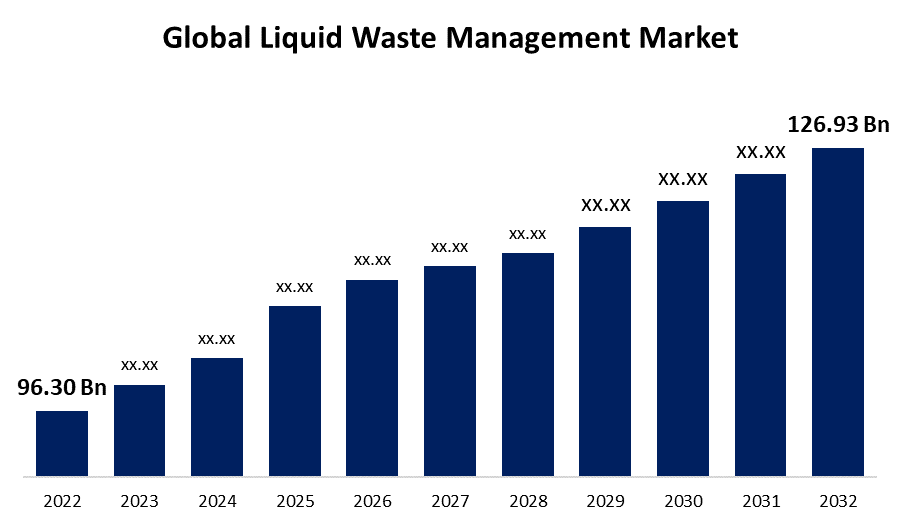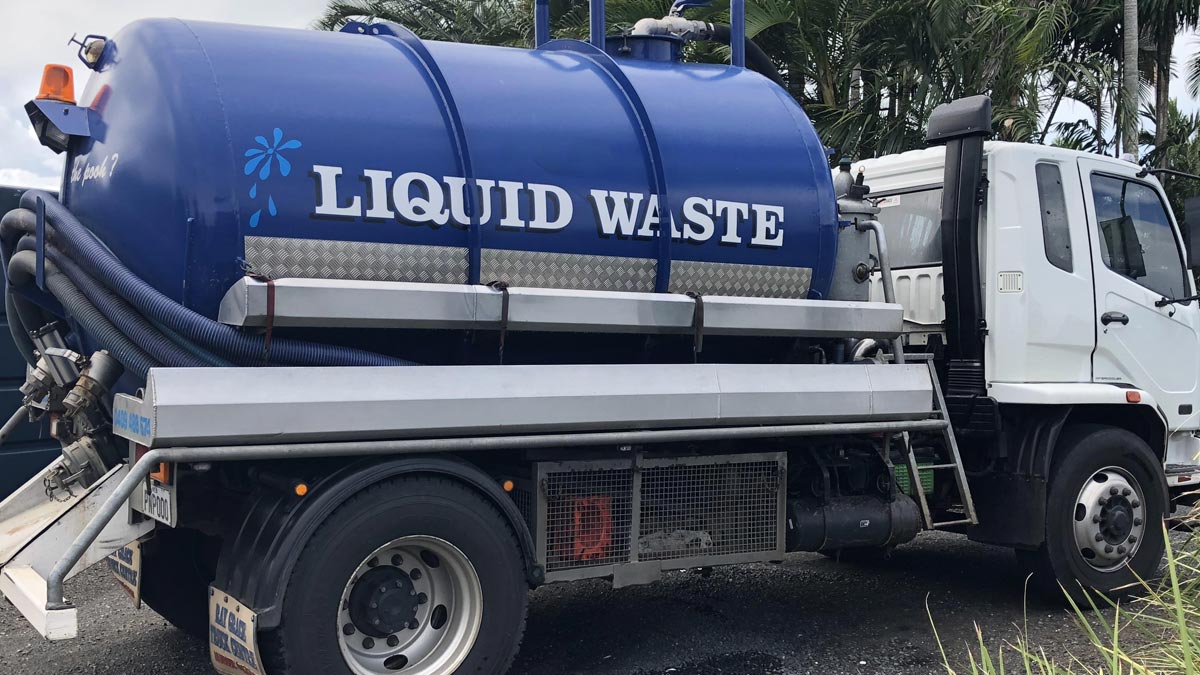Comprehensive Liquid Waste Disposal: Solutions for Houses and Companies
Comprehensive Liquid Waste Disposal: Solutions for Houses and Companies
Blog Article
Recognizing the Comprehensive Process of Fluid Waste Disposal: Finest Practices and Environmental Influence Considerations
The monitoring of fluid garbage disposal is a diverse concern that needs a comprehensive understanding of numerous finest techniques and their associated environmental influences. From the sorts of fluid waste generated to the approaches used for collection, treatment, and final disposal, each action plays a crucial role in protecting ecological communities and public health. As governing standards develop and technology advancements, the discussion around these procedures ends up being increasingly pertinent. What implications do these modifications hold for future sustainability efforts, and exactly how can stakeholders guarantee that they are properly addressed?
Kinds Of Fluid Waste
Recognizing the various kinds of fluid waste is vital for efficient administration and disposal practices. Fluid waste can be extensively classified into numerous kinds, each calling for distinct handling and treatment techniques.
Industrial fluid waste frequently has unsafe products, consisting of heavy metals, solvents, and chemicals, created during manufacturing processes. These wastes require rigorous governing conformity to protect human wellness and the setting. Domestic liquid waste mostly describes wastewater generated from families, including sewer and greywater, which, although less harmful, can still position considerable risks if poorly handled.
Agricultural liquid waste, including runoff from ranches, commonly includes fertilizers and pesticides that can lead to environmental deterioration if not treated appropriately. Medical fluid waste, generated from medical care facilities, consists of contaminated liquids such as bodily liquids and chemicals, calling for specialized disposal techniques to prevent infection and ecological contamination.
Finally, oil and oil waste, generally created by dining establishments and auto markets, can create serious obstructions in sewer systems if not managed effectively. Recognizing these categories facilitates targeted methods for treatment, compliance with policies, and efficient disposal techniques, ultimately advertising environmental sustainability and public health safety and security.

Collection Techniques
Reliable collection methods are important for the proper administration of liquid waste, ensuring that it is collected safely and effectively prior to treatment or disposal. Various techniques are employed depending upon the sort of fluid waste produced, the volume, and the specific attributes of the waste.
One typical technique is the use of devoted collection containers or sumps, which are created to record fluid waste at the resource. These systems usually include pumps that help with the transfer of waste to bigger storage space containers or treatment facilities. Furthermore, mobile collection devices equipped with vacuum cleaner technology are utilized in situations where waste is produced periodically or in hard-to-reach places.
For commercial settings, closed-loop systems can successfully reduce spills and leakages, permitting the healing and reuse of liquid waste. It is additionally vital to educate employees on proper collection protocols to mitigate threats linked with harmful compounds.
Additionally, carrying out normal maintenance routines for collection devices guarantees ideal performance and safety. The integration of sophisticated tracking systems can improve collection effectiveness by providing real-time information on waste degrees and prospective dangers. Generally, reliable collection techniques are fundamental to lasting fluid waste administration practices.
Treatment Processes
Therapy processes play a crucial duty in the monitoring of liquid waste, transforming potentially harmful products right into safe effluents or reusable sources - liquid waste disposal. These procedures can be generally classified right into physical, chemical, and biological methods, each customized to deal with specific pollutants present in the waste stream
Physical therapy techniques, such as sedimentation and filtering, job by removing put on hold solids and particle matter. These techniques are often the very first action in the treatment chain, successfully decreasing the load on succeeding procedures. Chemical therapies include making use of reagents to neutralize hazardous substances, speed up hefty metals, or oxidize natural toxins, thereby improving the safety and security of the effluent.
Organic treatment procedures, including turned on sludge systems and anaerobic digestion, capitalize on the all-natural capacities of microorganisms to break down raw material. These methods are specifically reliable for wastewater having naturally degradable pollutants. Advanced treatment modern technologies, such as check here membrane filtering and progressed oxidation processes, are increasingly utilized to achieve greater levels of filtration.
Including a mix of these treatment approaches not just makes sure compliance with governing criteria yet also promotes ecological sustainability by recouping useful sources from fluid waste.
Disposal Options
Just how can companies ensure the responsible and risk-free disposal of liquid waste? Reliable disposal alternatives are essential for securing public wellness and the setting. The main methods include land treatment, incineration, and disposal followed by discharge right into local wastewater systems.
Land disposal involves the careful containment of fluid waste in marked landfills, ensuring that it does not seep into bordering soil or water. Incineration, on the other hand, topics fluid waste to heats, transforming it right into ash and gases, which require correct filtering to reduce exhausts. This approach appropriates for contaminateds materials that can not be dealt with through typical methods.
In situations where fluid waste can be dealt with, companies might select organic or chemical therapy processes to neutralize unsafe elements prior to discharging the dealt with effluent right into community systems. This path typically aligns with regulatory needs, guaranteeing that the effluent meets safety standards.
Eventually, companies need to carry out detailed analyses of each disposal alternative to determine its stability, considering variables such as waste make-up, regulatory compliance, and possible threats to wellness and the environment. By selecting proper disposal approaches, organizations can contribute to a liable waste management method.
Environmental Effect
The environmental effect of fluid waste disposal is a critical factor to consider for companies looking for to minimize their ecological impact. Inappropriate disposal approaches can cause substantial contamination of water sources, soil destruction, and unfavorable effects on local ecological communities. For instance, dangerous fluids can leach into groundwater, presenting dangers to alcohol consumption water supplies and water life. In addition, the discharge of untreated or inadequately dealt with waste right into surface area waters can lead to eutrophication, bring about oxygen exhaustion and the subsequent fatality of fish and various other organisms.

To minimize these effects, companies should adopt finest practices such as applying strenuous waste treatment procedures, advertising recycling and reuse, and adhering to regulative criteria. By taking an aggressive strategy to fluid waste monitoring, entities can significantly lower their ecological impact while sustaining lasting advancement objectives. Ultimately, a thorough understanding go of the ecological effects related to go to my site liquid waste disposal is important for notified decision-making and liable stewardship of natural resources.
Conclusion
Effective management of fluid waste is vital for guarding environmental integrity and public health and wellness. By adopting best practices in collection, disposal, and treatment, together with adherence to governing criteria, the capacity for hazardous contamination of communities can be dramatically lowered. Continual innovations in technology and processes add to sustainable waste administration efforts. Ultimately, a comprehensive understanding of fluid waste disposal not only alleviates environmental impacts yet also fosters a commitment to accountable source administration and environmental stewardship.
The management of fluid waste disposal is a multifaceted issue that calls for an extensive understanding of numerous best methods and their associated ecological influences. From the kinds of liquid waste produced to the methods utilized for collection, therapy, and last disposal, each step plays a critical role in securing environments and public wellness.The ecological influence of liquid waste disposal is a vital consideration for organizations seeking to lessen their environmental footprint. Eventually, a detailed understanding of the ecological influences linked with liquid waste disposal is crucial for notified decision-making and responsible stewardship of natural sources.
Eventually, a comprehensive understanding of fluid waste disposal not only minimizes ecological impacts however also promotes a dedication to responsible resource monitoring and environmental stewardship.
Report this page